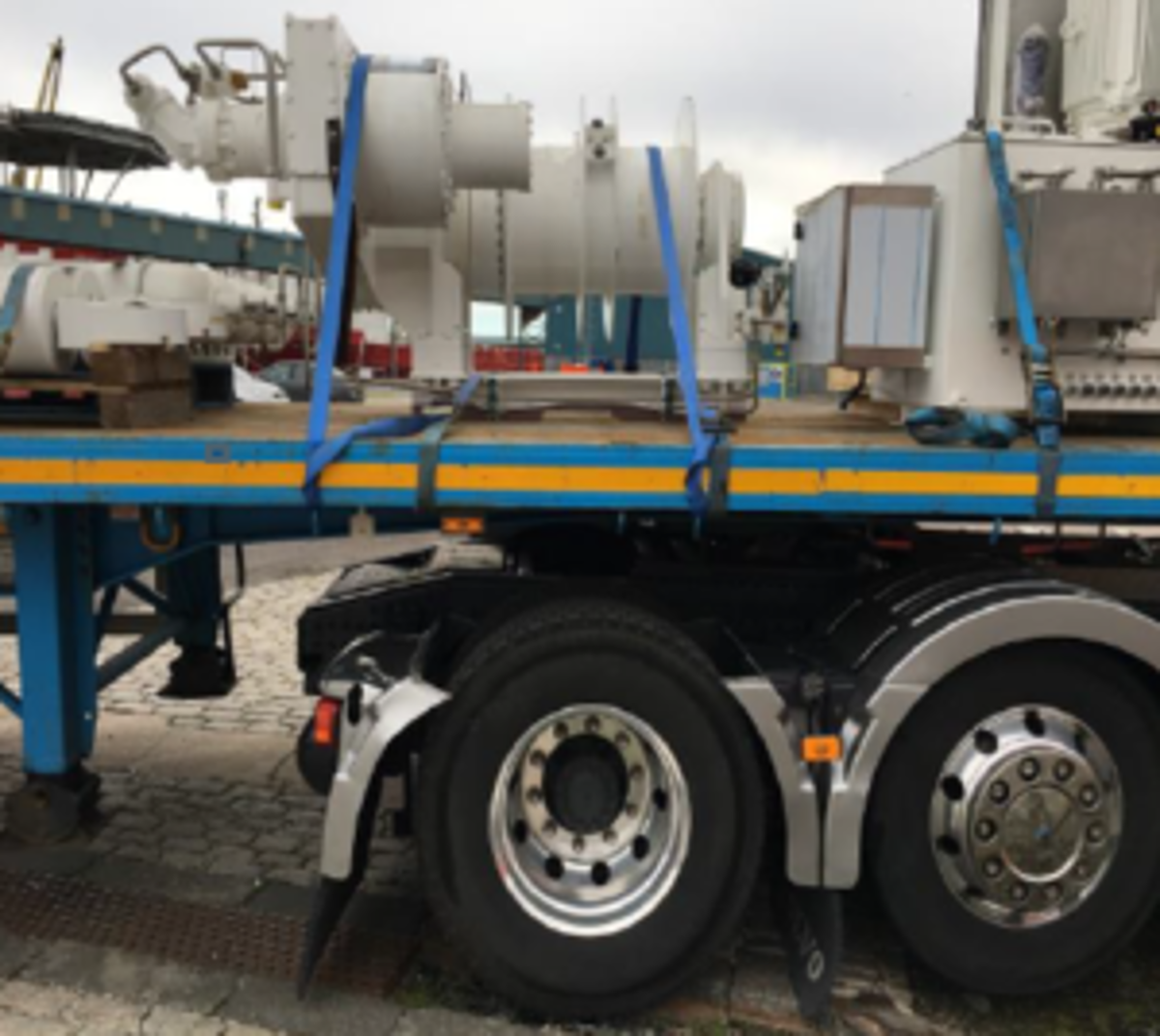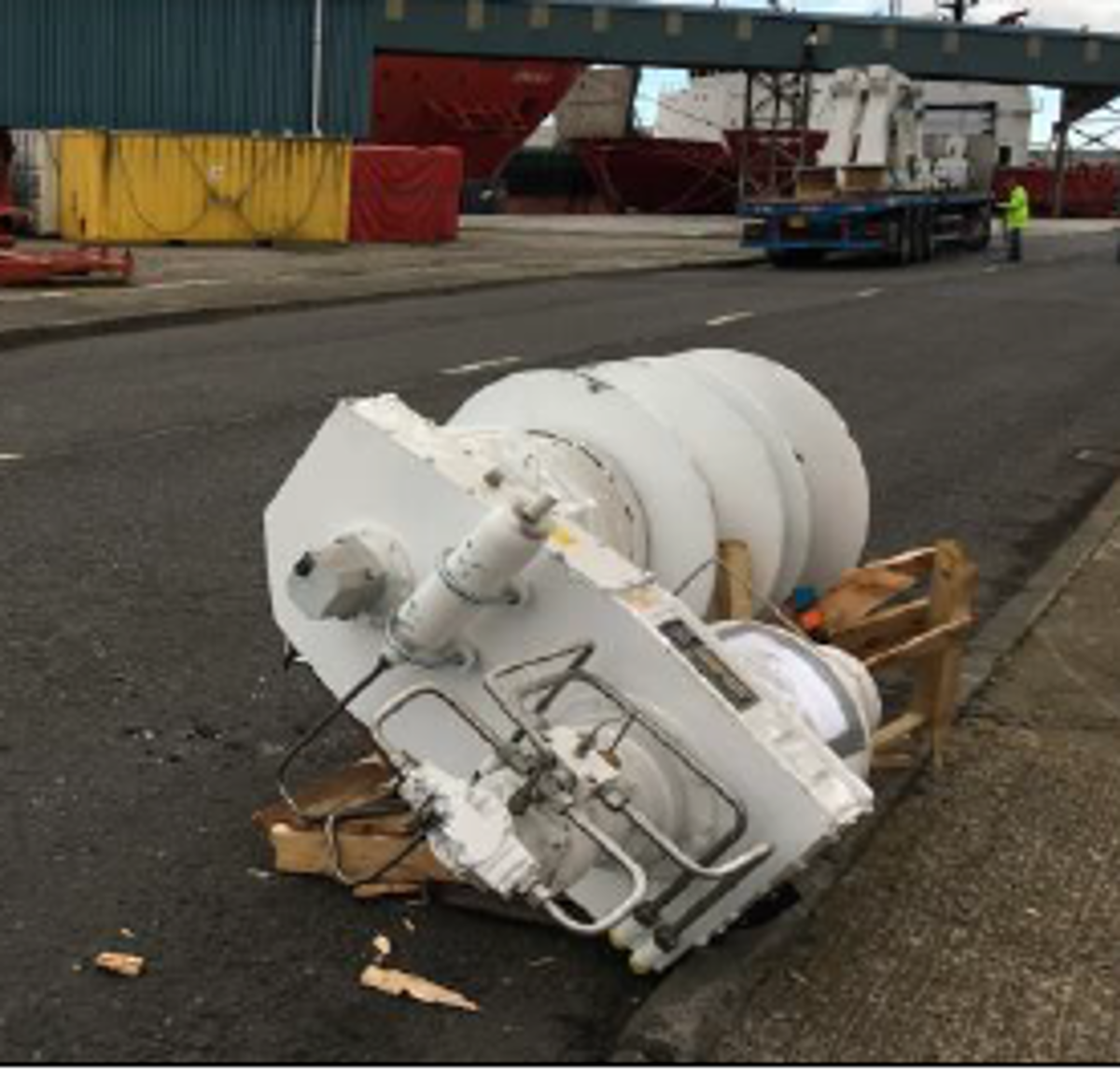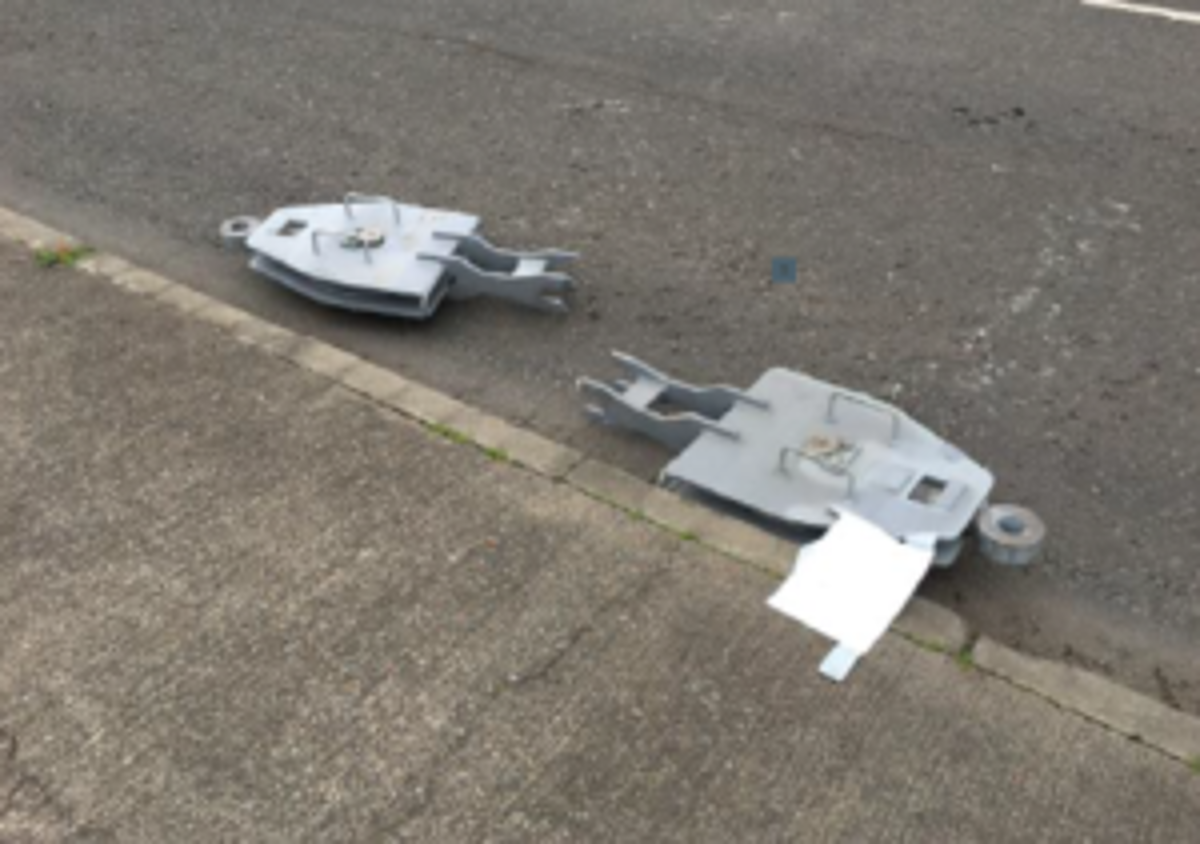Load fell from trailer after it was inadequately secured
- Safety Flash
- Published on 24 April 2018
- Generated on 28 February 2026
- IMCA SF 09/18
- 3 minute read
Jump to:
Two articulated lorries with 20′ trailers were organised to move equipment, including lifeboat davits, a power-pack, winches and sheave blocks, from one location to another.
What happened?
The first trailer was loaded inside a shed, then driven outside to complete lashings and allow simultaneous loading of the second trailer. During the movement of the first trailer, the free end of a single lashing became entangled in the tractor unit wheels, breaking the strap and allowing part of the load to topple from the trailer onto the roadway.
What went wrong? What were the causes?
The loads were inadequately secured on the trailer, resulting in a davit winch and two sheave blocks falling on to the road. This incident had potential for personal injury and damage to other road users.
The loose end of the strap securing the winch and blocks was not stowed correctly. The driver took the vehicle out of the shed to allow the second collection trailer to access the shed, and continued to drive out of the front yard area, then proceeded to take a wide arc left over the middle of the port’s road. A loud bang was heard as a winch and two snatch blocks fell from the vehicle. A worker witnessed a loose strap flapping on the trailer’s nearside, before hearing the loud bang. However, the vehicle was too far away for him to intervene.
The incident area was made safe by removing the fallen equipment from the road to the shed. Other than surface damage, the equipment appeared to be unharmed. Additional ratchet straps were placed on the winch for extra security.
What lessons were learned?
- The winch was a heavy piece of equipment with a high and offset centre of gravity, rendering it an unstable load.
- A conventional pallet was unsuitable for the type, shape and size of the equipment. Consideration should have been given to shipping the items in half height containers.
- There was a failure to effectively secure the load before movement of the truck, and there was poor practice in not securing the free end of a securing strap.
- A dedicated loader or dispatcher should discuss loading arrangements with the driver.
- The driver should remain in a safe area during the loading operation.
- Vehicles with an open flatbed should have their loads secured before entering and exiting the worksite.
Related Safety Flashes
-
IMCA SF 10/17
12 May 2017
-
-
IMCA SF 10/13
25 June 2013
IMCA Safety Flashes summarise key safety matters and incidents, allowing lessons to be more easily learnt for the benefit of the entire offshore industry.
The effectiveness of the IMCA Safety Flash system depends on the industry sharing information and so avoiding repeat incidents. Incidents are classified according to IOGP's Life Saving Rules.
All information is anonymised or sanitised, as appropriate, and warnings for graphic content included where possible.
IMCA makes every effort to ensure both the accuracy and reliability of the information shared, but is not be liable for any guidance and/or recommendation and/or statement herein contained.
The information contained in this document does not fulfil or replace any individual's or Member's legal, regulatory or other duties or obligations in respect of their operations. Individuals and Members remain solely responsible for the safe, lawful and proper conduct of their operations.
Share your safety incidents with IMCA online. Sign-up to receive Safety Flashes straight to your email.


